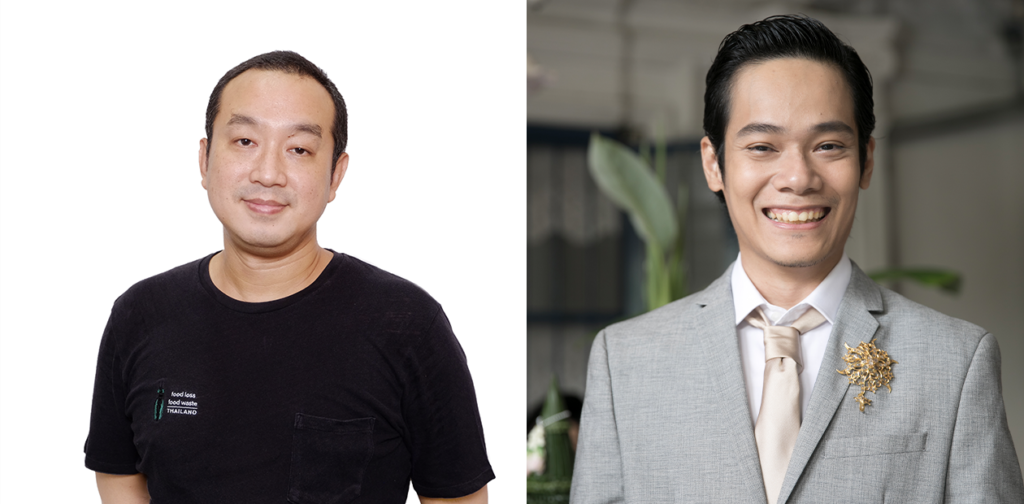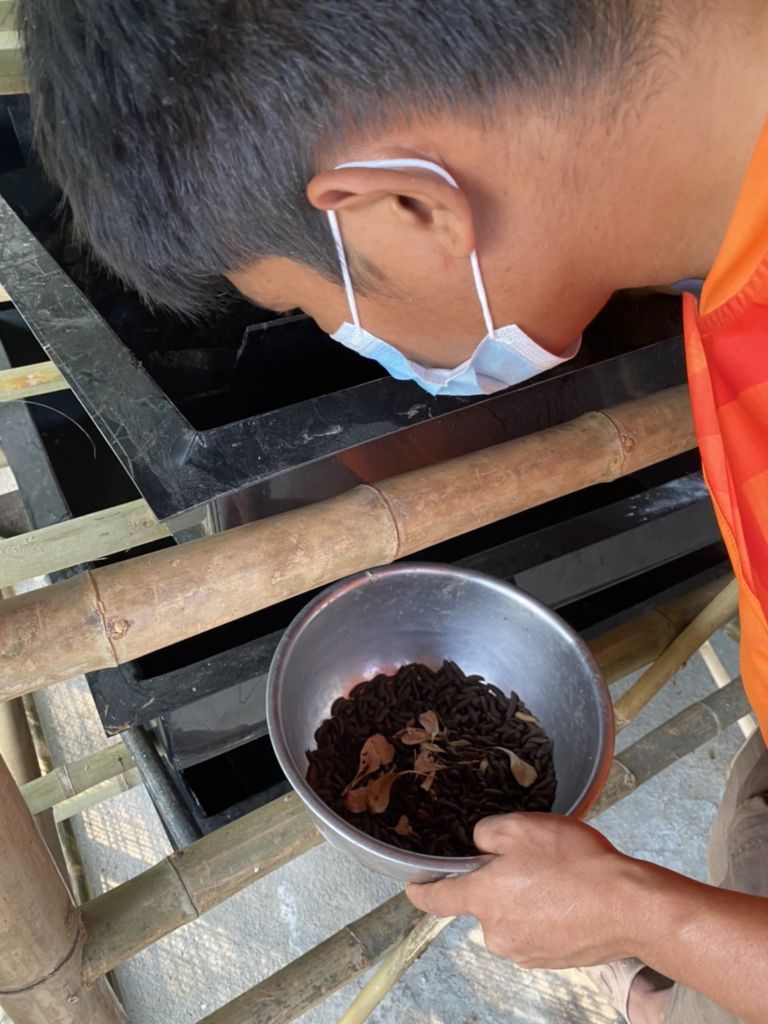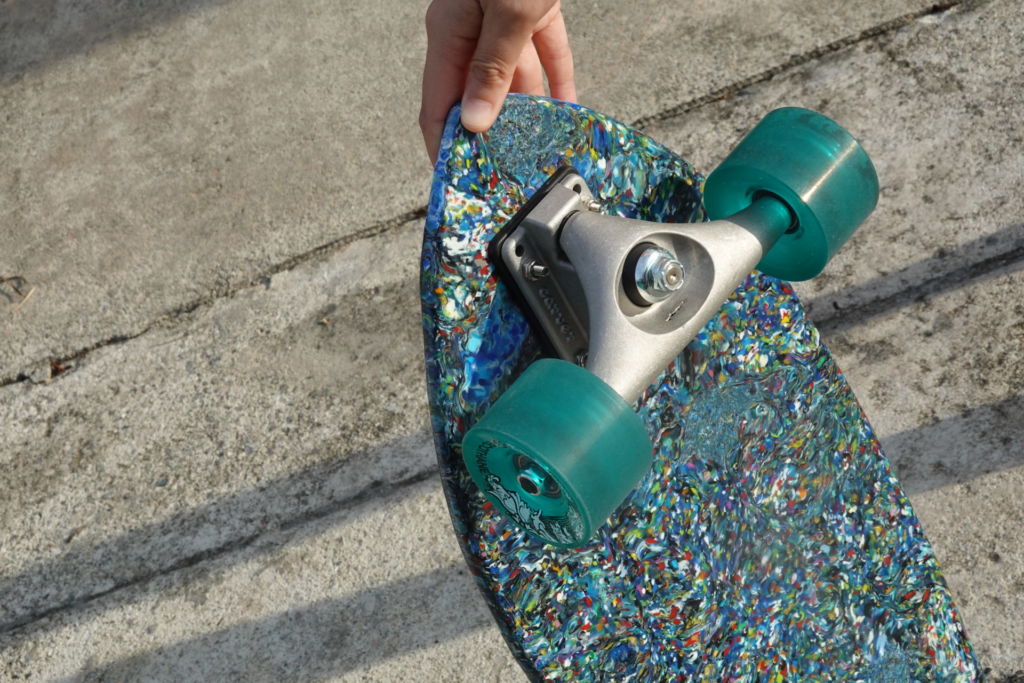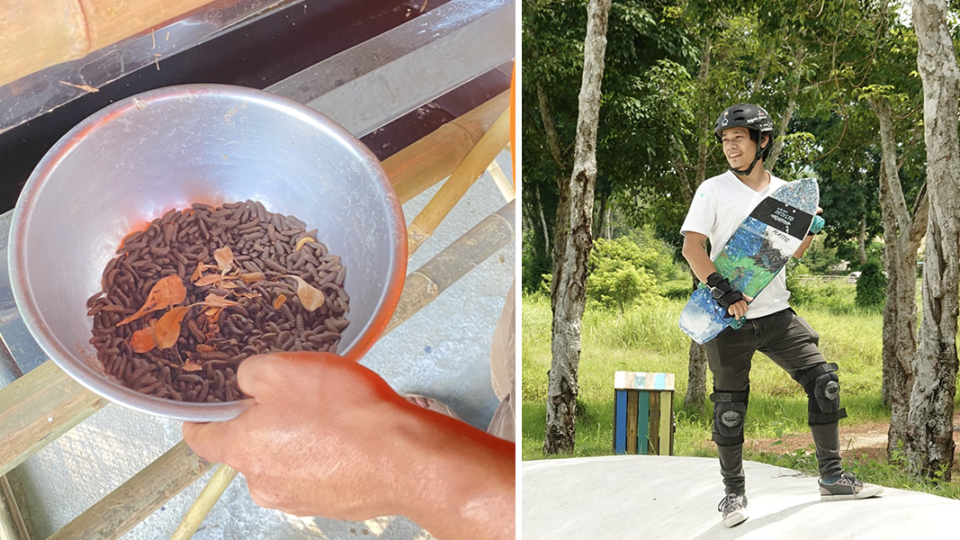On sunny days, Promrote Vimolkul surfskates on a board made from used bottle caps near his Phuket home. In Bangkok, Trin Rujiravanich sets flies to work decomposing food waste to turn it into fertilizer – and keep it out of landfills.
Both men want to make a dent in Thailand’s massive waste problem through their environmental startups to tackle an issue which had pierced public awareness before being buried under a pandemic’s worth of disposable delivery packaging.

Thailand has set several waste management goals to address its plastic crisis, including stemming the tide of waste heading to landfills, many of which are operated illegally and contribute to groundwater contamination.
“Out of 2,000 landfills in the country, only about 20 are legal and abide by the rules,” Trin told Coconuts. “And they are struggling to deal with the waste.”
Little of what is dumped is recycled. Only 500,000 tons of the 2 million tons of plastic waste that ended up in landfills was recovered, according to a 2019 study. Food waste is also a major contributor to the 25 million tons dumped into landfills nationwide in 2020.
While Thailand is taking first steps into trash separation, Trin wants to promote its expansion to include organic and inorganic waste.
“I think the system is broken,” he said. “If you look at the amount of waste, you’ll find that 64% is organic. But we don’t have a destination for it.”
His startup, Food Loss Food Waste, aims to fill that smelly void. Last year, the social enterprise recycled 10 tons of food waste and aims to increase that to 30 tons this year.
To do this, he has helped set up community composts centers and educate farmers nationwide.

Specifically, farmers in Chiang Mai and Koh Samui, who have switched from toxic chemical fertilizers to compost made by a plentiful alternative with a lot of buzz – black soldier flies.
Trin says it’s a cost-effective and environmentally friendly way to decompose waste the old fashioned way. A study notes the larvae can consume up to 200mg food waste per day and remove toxic substances from the compost.
Composting has made it easier to reclaim plastics for recycling and food waste for decomposition. According to Trin, only 12% of their processed waste ends up in a landfill.
“If we can separate the organic waste, the plastic waste becomes less contaminated and we could recycle them all over again,” Trin said. “There’s no good having them contaminated and going to landfills that would benefit no one.”
Fantastic plastic
Putting that plastic to further use is where Promrote comes in. He believes the first step is increasing awareness. Thus, the hitching onto a cultural moment with eye-catching surf skateboards.
“Not many understand plastic pollution, so we have to think about a gimmick to get people to join in,” Promrote told Coconuts. “The products we make are invitation cards for people to come and study about plastic waste.”
His design studio, PoonSook Craft, removes plastic from the ocean and recrafts it into products such as the boards and handcrafted bags.
During a 2021 campaign he joined with WWF, every student who turned in 2,000 bottle caps got a custom skateboard made from recycled plastic. The campaign garnered more than 40,000 caps.

“We get the waste from the sea, clean it up, and design it into a product, giving new life for waste,” Promrote said.
As with any startup, funding is a problem for both.
“A lot of people say that a social enterprise is like a nonswimmer trying to help a drowning man,” Trin said. “The key method, if using my enterprise as an example, is that we have to reach financial sustainability. If we cannot help ourselves, we cannot help others.”
By 2023, he hopes to have up to eight community compost centers operating.
“We are talking to several government agencies and investors to see if we could set up a community compost on an industrial scale,” Trin said.
As for Promrote, he is working with surfskate brand Sunova on making bottle cap boards due to launch in July.




